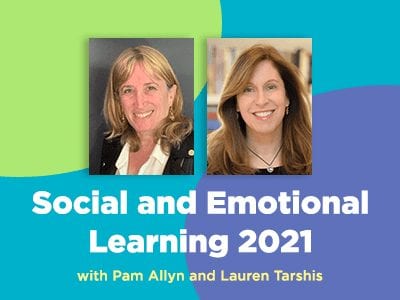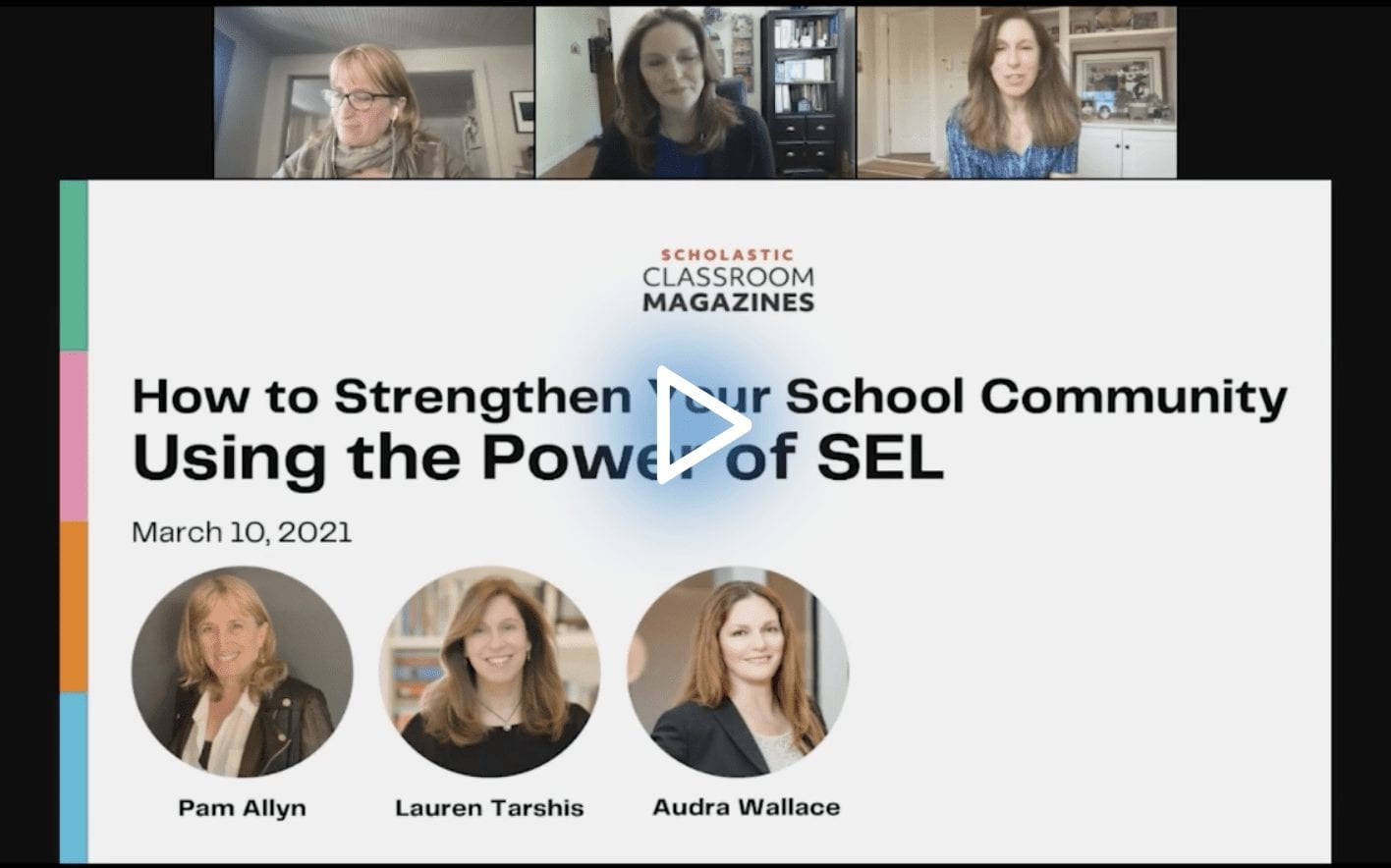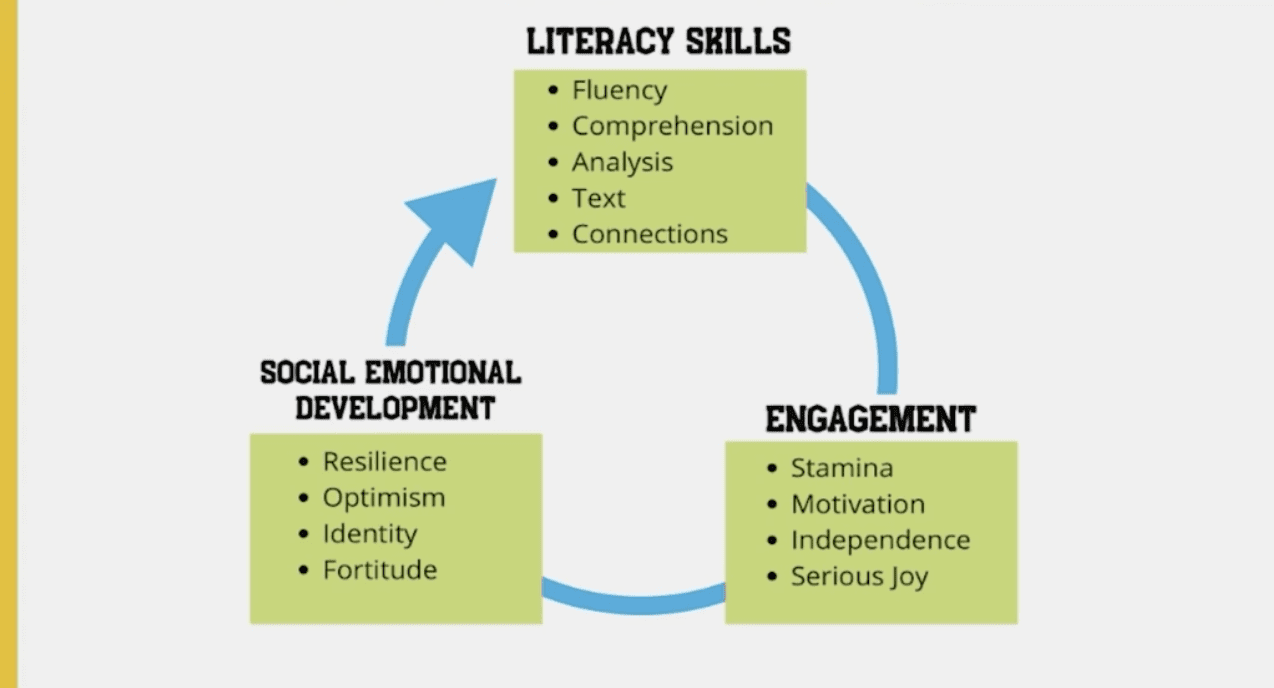Schools of Fortitude: It’s All About SEL
By Michele Israel
WATCH THE EDLEADER PANEL RECORDING
It’s been a rough year, especially for students. Virtual and hybrid learning, schools opening and closing, struggles with technology and access, sickness and restrictions. Who wouldn’t be anxious, scared and out of sorts with this level of disruption?
When schools begin to operate at fuller capacity post-COVID, they will need to nurture students more than ever. The edLeader Panel “How to Strengthen Your School Community Using the Power of SEL,” sponsored by Scholastic Classroom Magazines, highlighted ways school administrators can bolster social-emotional learning (SEL) to get students back on track toward a culture of resilience, empowerment and confidence.
The Urgency and Value of SEL
SEL heightens students’ sense of belonging, calls for affirmational and celebratory learning environments and encourages an equitable and empathetic school culture. SEL is much needed, emphasized by Pam Allyn, author, educator, and literacy advocate who founded LitWorld.
“We’ve been worried about our kids,” said Allyn. “We’ve been asking ourselves the questions, ‘What does it mean to create safe spaces for them? What does it mean to encircle them with the kind of care that’s going to enable them to be at their best and empower them to accelerate their achievement?’”
For Allyn, SEL is grounded in strength, not deficit. And that is crucial to student engagement when implementing SEL programs.
Students need to fortify their inner strength, inner worth, and sense of self in the world. Allyn uses LitWorld’s 7 Strengths, a model for building social-emotional well-being while developing academic skills.
The framework’s core themes—belonging, kindness, curiosity, friendship, confidence, courage, and hope—are what Allyn encourages school districts to embrace. They give students (and faculty) a shared language authentic to them, voice, and agency that help them become more optimistic and curious learners.
Administrators and faculty can support this trajectory by affirming and acknowledging student strengths through a 7 Strengths lens; celebrating students’ individuality and uniqueness while encouraging them to form community and reframe challenges as growth opportunities.
Literacy as an SEL Driver
Literacy can also fuel a community of belonging, resilience, hope, and high expectations when students read literature that reflects their stories and, in turn, promotes engagement and accelerates achievement.
Focusing on the literacy skills of fluency, comprehension, analysis and text connections (along with phonics, spelling and vocabulary) offers opportunities to address the 7 Strengths.
“When I’m reading with my students,” said Allyn, ”and we’re looking at magazine articles, online digital materials, graphic novels or historical text or informational text, we have—an honest conversation to open up that thinking around SEL and to say, ‘What feels hard? What makes you feel courageous? What gets you inspired? What are the obstacles getting in your way?’”
Stories that inspire and have resonance with learners propel SEL. Such texts encourage learners to share and manifest their stories because they matter. The combination of literacy and SEL brings students’ strengths to the forefront.
Allyn said educators could use these strengths to teach children how to read and write and live in the world in a community with others. They can recognize kindness from what they give to someone. They can learn not to judge and second guess themselves. They are then able to be thoughtful and mindful in the world.
The Literacy-SEL Combo: Guidance for Administrators
Allyn offered administrators several ways to successfully mesh literacy and SEL development:
- Ensure there is a variety of texts (long and short) that includes books, magazines, media experiences (gaming, browsing, visual media) and blended resources (online conversations) that are relatable to students and are at different levels to encourage “reading up.”
- Offer a range of “read alouds” with culturally diverse texts that enable students to have a sense of belonging as they see, hear and feel the power of the world’s stories. Such stories prompt conversations that bring out students’ sense of self and their empathy toward others.
- Give students choice in what they read, even if that involves rereading specific texts repeatedly.
- Ensure that teachers, librarians, media specialists and other school staff who support literacy development invite students to think about how what they read changes the way they think or makes them want to change the world.
- Select materials by authors who write in diverse ways with diverse opinions and perspectives, allowing students to read the world to build empathy and social awareness. Not agreeing with points of view is desirable; it demonstrates that people can listen without arguing, respect other voices while maintaining theirs.
- Promote independent reading to give students the power to read without teacher support and create a sense of belonging around independent reading. Give students the opportunity to move from a theme-based class read aloud to read independently to discover how the theme relates to them.
- Establish reading rituals that can shape community within the context of the 7 Strengths.
“That’s what I want to see,” Allyn expressed. “To me, that’s all SEL. That’s the SEL link to literacy. Why? Because it’s giving students fortitude, the courage of the 7 Strengths, confidence to read widely, the hope that you’re the kind of reader who will have an impact in the world.”
This edWeb broadcast was sponsored by Scholastic Classroom Magazines.
WATCH THE EDLEADER PANEL RECORDING
About the Presenters
Lauren Tarshis is Senior Vice President and Editor-in-Chief/Publisher of Scholastic Classroom Magazines, where she oversees more than 30 classroom magazines, which reach more than 25 million students. In her more than 25 years with Scholastic, Lauren has helped transform the company’s print magazines into the powerful learning tools they are today. In her current role, she is helping to expand the magazines’ deep connection to American classrooms and ensure their vital role in providing teachers and students with an understanding of the contemporary world. In addition to her work at Scholastic, Lauren is an award-winning New York Times bestselling author. Her acclaimed I Survived series published by Scholastic, which has more than 23 million copies in print to date, tells stories of young people and their resilience and strength in the midst of unimaginable disasters. Lauren can be found online at laurentarshis.com.
Pam Allyn is a renowned author, educator and advocate for the lives of children as readers, writers and learners; and the founder of the global literacy initiative LitWorld. She is a leading authority on the confluence of literacy and social-emotional learning to transform academic and wellness outcomes in children and young adults of all ages.
Audra Wallace is the editorial director of Scholastic News Editions 3-6. Audra has written and edited content for Scholastic for 14 years. She is also a former third-grade teacher and the author of several nonfiction books, including How Full is Your Bucket? Young Reader’s Edition.
Join the Community
Social-Emotional Learning is a free professional learning community on edWeb.net where educators can collaborate and share ideas, examples, and resources for incorporating social-emotional learning in the classroom.
Scholastic Classroom Magazines are the simple solution to student engagement. Get fresh, high-interest stories, videos and activities delivered right to your school all year long. With a powerful digital platform and optional print issues, magazines are flexible enough to use at home, in school or both. And every single resource is designed to build knowledge and skills across the content areas.
Michele Israel writes about the ideas and best practices that are shared in edWeb’s edWebinars so they can spread innovative and best practices to the education community. Michele owns Michele Israel Consulting, LLC, which serves large and small educational, non-profit, media, corporate, eLearning, and blended learning organizations to bolster products and programs. Her rich career spans over 25 years of successfully developing educational materials and resources, designing and facilitating training, generating communication materials and grant proposals, and assisting in organizational and program development. In addition to lesson plans and other teacher resources, Michele’s portfolio includes published articles covering a range of educational and business topics.






Comments are closed.